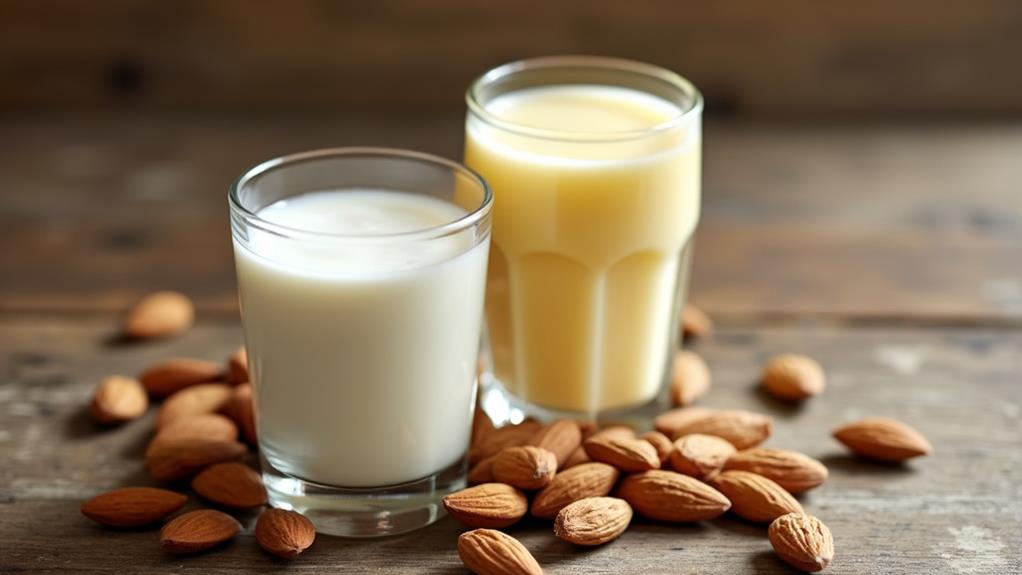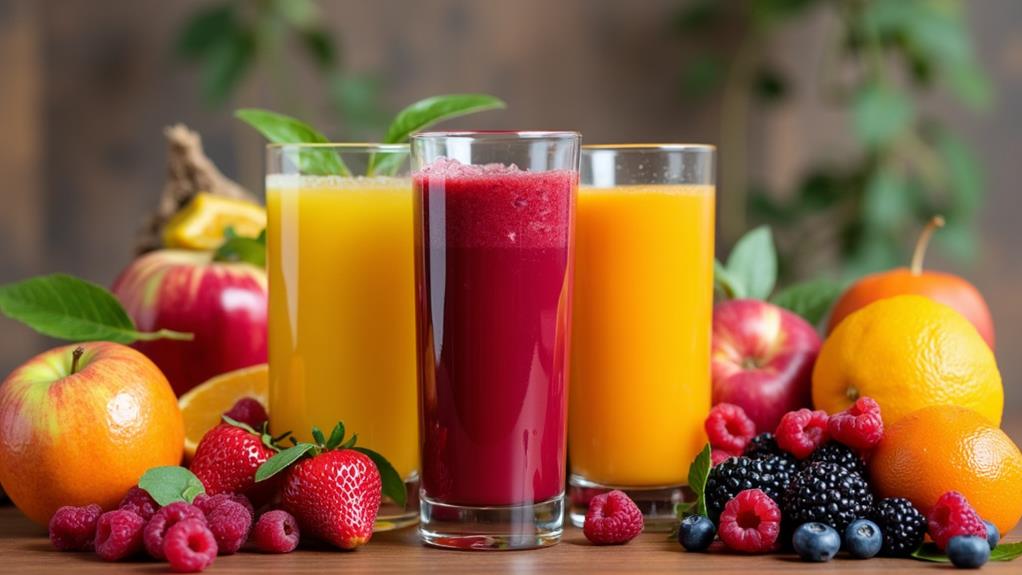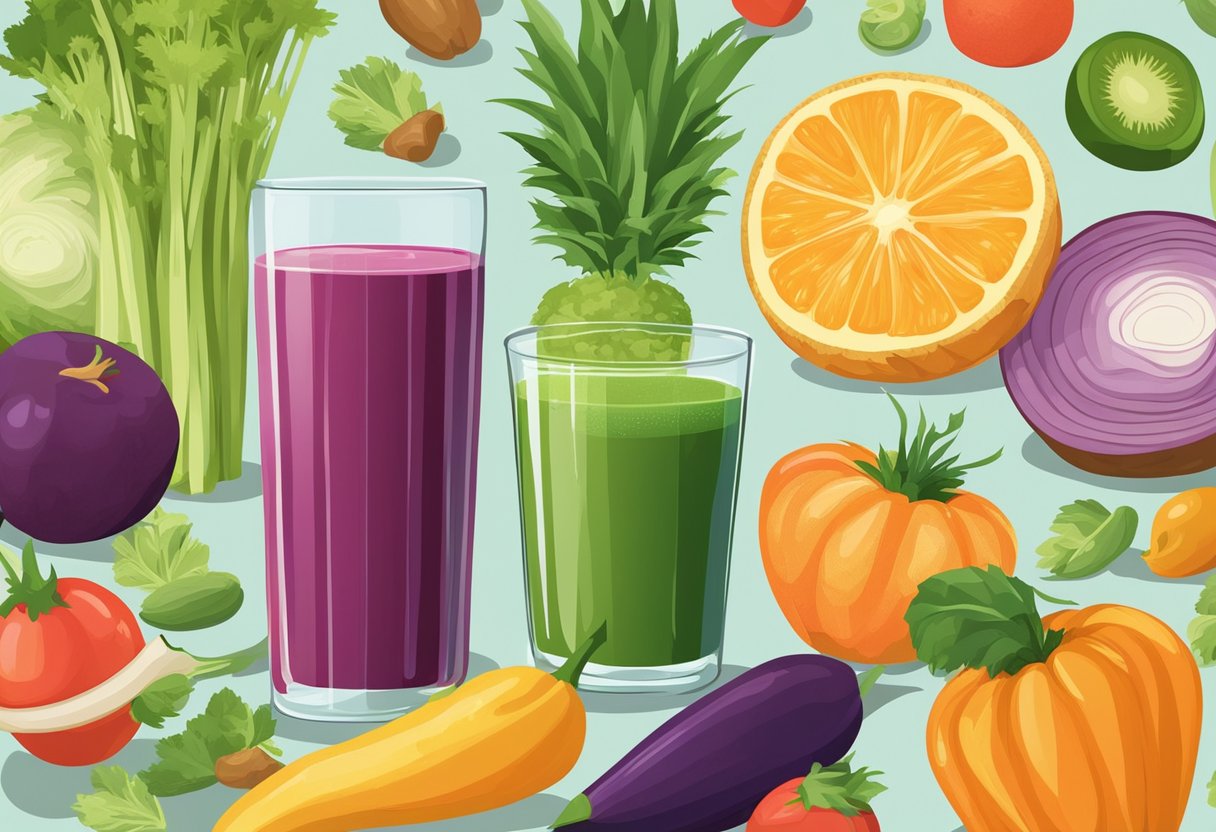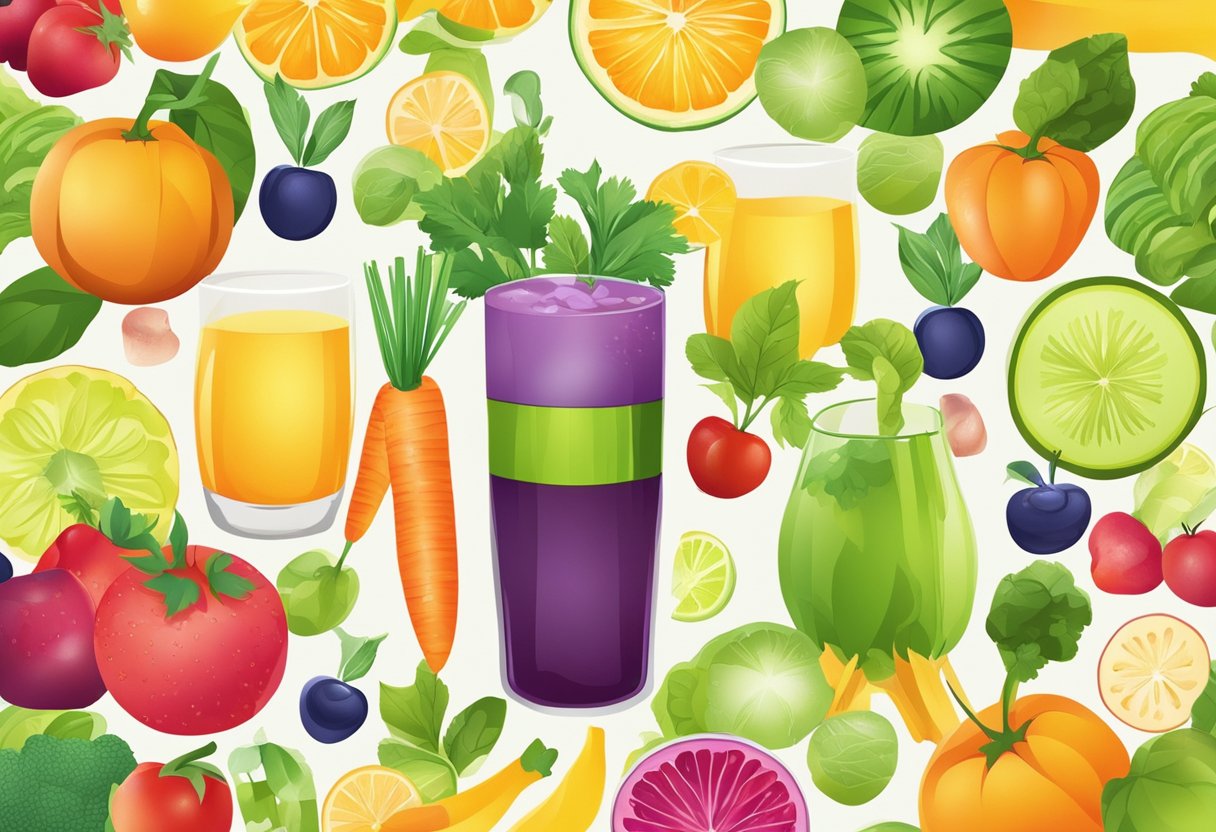Cassava (Yuca) Juice: A Starchy and Calorie-Dense Energy Drink
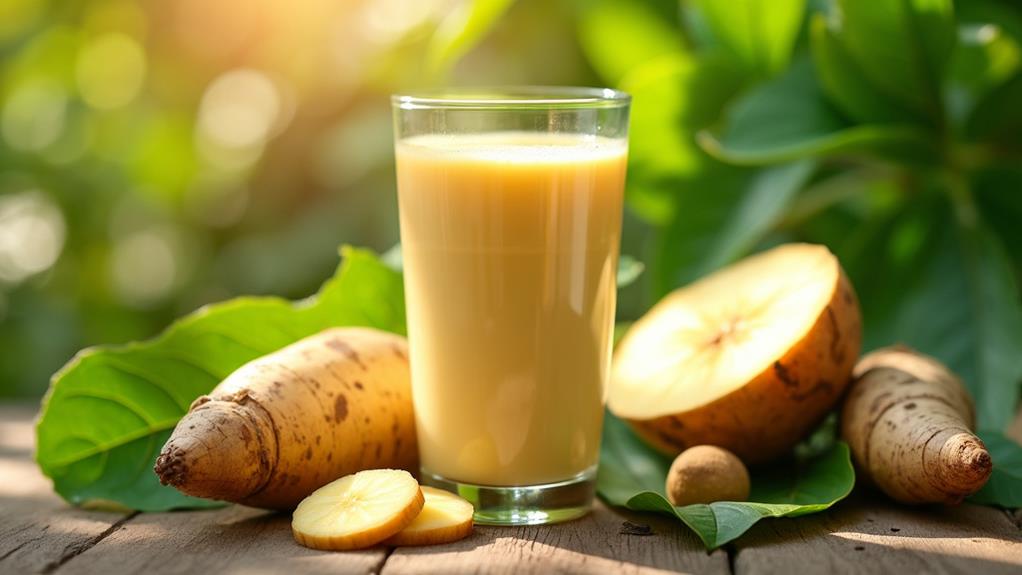
Cassava juice is a high-energy drink made from the starchy roots of the cassava plant. With around 191 calories and 40 grams of carbs per 100 grams, it's perfect for active lifestyles needing a quick energy enhancement. Packed with Vitamin C and potassium, it supports your immune system and heart health. However, it's essential to prepare it properly to eliminate toxic compounds naturally present in cassava. Enjoy it as a gluten-free ingredient in smoothies or baking, but balance it with other nutrients to avoid excess calories. Immerse yourself in its vast culinary and nutritional benefits, a key to its global popularity.
Understanding Cassava Juice
Cassava juice, derived from the starchy root of the cassava plant, is a high-calorie beverage packed with carbohydrates and important nutrients. When you enjoy cassava juice, you're tapping into a rich energy source, perfect for fueling an active lifestyle. With around 191 calories and 40 grams of carbohydrates per 100 grams of cooked cassava, it provides quick energy that can be necessary for your daily activities or workouts.
Cassava juice isn't just about calories, though. It offers important vitamins and minerals that support your general health. Vitamin C in the juice plays a key role in enhancing your immune function and maintaining healthy skin. Plus, the potassium content contributes to cardiovascular health, making sure that your heart keeps pace with your energetic lifestyle.
Now, let's talk about preparation. Cassava contains cyanogenic glycosides, which are toxic compounds. To enjoy cassava juice safely, you need to confirm the roots are properly prepared. This involves peeling, soaking, and cooking the cassava thoroughly before juicing. By following these steps, you can savor the nutty flavor and nutritional benefits of cassava juice without any worries.
Nutritional Benefits
While understanding how cassava juice is prepared is important, you might be more intrigued by what it offers nutritionally. This starchy beverage packs a punch with its calorie-dense profile, delivering approximately 191 calories per 100 grams. The high calorie content primarily stems from carbohydrates, making cassava juice a considerable energy source. It's particularly beneficial for those who need a quick energy enhancement, such as athletes and physically active individuals.
Here's what makes cassava juice nutritionally appealing:
- Energy Source: With around 40 grams of carbohydrates per cup, cassava juice provides a quick and effective way to replenish energy levels.
- Immune Function and Antioxidant: Rich in vitamin C, cassava juice plays a significant role in supporting your immune function while acting as an antioxidant to combat oxidative stress.
- Gut Health: The resistant starch in cassava juice nurtures beneficial gut bacteria, promoting gut health and improving digestion.
- Cardiovascular Health: Packed with vital vitamins and minerals, including potassium, it aids in fluid balance and supports cardiovascular health.
Health Implications
When considering the health implications of cassava juice, it is vital to be aware of its high calorie and carbohydrate content. This calorie-dense beverage offers around 191 calories per 100 grams, largely from its significant starch content. While it can be a potent energy source, consuming it in large quantities may not suit everyone. If you're managing diabetes or following a low-carb diet, the rapid spikes in blood sugar levels caused by cassava juice could be concerning.
Regularly drinking cassava juice without moderation might contribute to weight gain, especially if it's not balanced with nutrient-dense foods. It's essential to recognize that while cassava juice provides energy, it lacks substantial protein and vital micronutrients, which are necessary to meet your general nutritional needs.
Furthermore, the preparation of cassava juice requires careful attention. Raw cassava contains toxic cyanogenic compounds, which must be properly processed for safe consumption. Ignoring this significant step can pose serious health risks. To sum up, while cassava juice can be a beneficial energy drink when consumed responsibly, understanding its health implications and ensuring it's safely prepared is critical for maintaining your wellbeing.
Safe Preparation Tips
To guarantee cassava juice is safe for consumption, you'll need to follow a careful preparation process. Cassava contains cyanide-producing compounds, so proper handling is imperative. Here's how you can ascertain your prepared cassava is safe to eat:
- Peeling: Start by peeling the cassava root thoroughly. This step is fundamental to remove the skin, which holds most of the harmful cyanogenic compounds. By doing this, you markedly reduce the risk of adverse health effects associated with cyanide.
- Soaking: After peeling, soak the cassava in water for 48-60 hours. This soaking process helps to further reduce any remaining cyanogenic glycosides, making the cassava safer for consumption. Remember, thorough soaking is key in verifying it's safe to eat.
- Boiling: Once soaked, boil the cassava in salted water for 30 minutes until it becomes tender. Ascertain you discard the cooking water afterward, as it may contain residual toxins.
- Sourcing: Always source cassava from reputable suppliers. This step assures the quality and safety of the root, which is fundamental when preparing it for consumption.
Culinary Applications
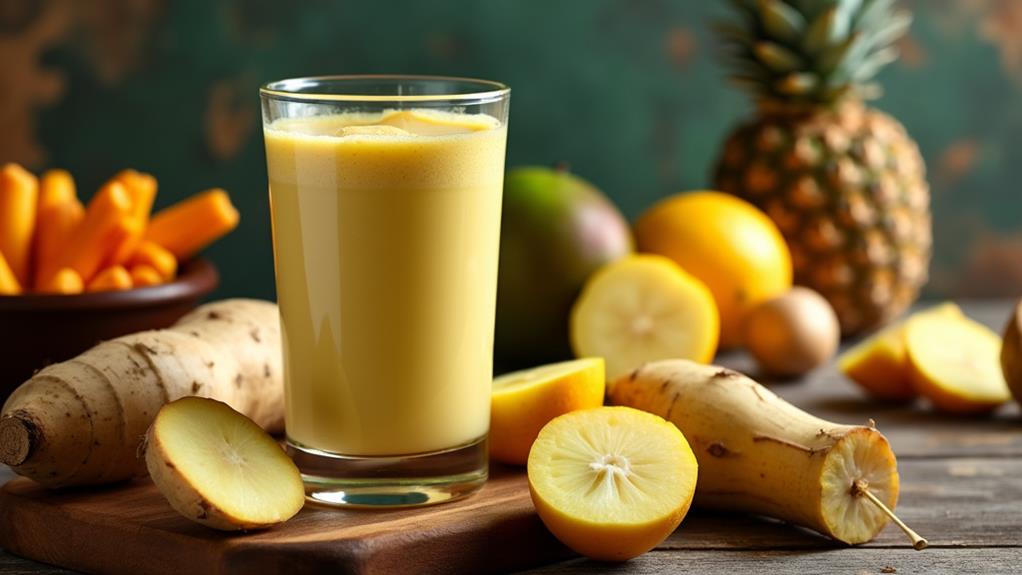
Cassava juice bursts onto the culinary scene with its versatility and energy-rich profile. Derived from the starchy root, it offers approximately 191 calories per 100 grams, making it a potent energy source. You can enjoy this calorie-dense beverage in numerous ways, but ensuring it's properly prepared is vital to eliminate any toxic compounds in raw cassava. Once ready, cassava juice opens up a world of culinary possibilities.
In many cultures, cassava juice is fermented to create traditional drinks. This process not only improves its flavor but also increases its probiotic content, offering supplemental health benefits. You can also blend cassava juice with fruits or sweeteners to craft delectable smoothies or energy drinks, catering to different taste buds.
Moreover, cassava juice shines as a versatile ingredient in cooking and baking. It's a perfect gluten-free alternative for recipes requiring liquid, making it an excellent choice for those with gluten sensitivities. Regardless of whether you're whipping up a hearty soup or baking a cake, cassava juice can add a unique twist to your creations. Welcome the culinary potential of cassava juice and investigate its myriad applications in your kitchen adventures.
Global Cultural Significance
In the tapestry of global culinary traditions, cassava juice holds a unique place, deeply woven into the cultural fabric of tropical regions. As a traditional beverage, it's especially popular in South America, where it's consumed not only for its taste but also for its calorie-dense and energy-enhancing properties. Brazil, for instance, showcases cassava's versatility through cultural practices by fermenting it into "cachaça," a beloved alcoholic drink. Meanwhile, African cultures enrich their meals with cassava leaves, sometimes extracting the juice for its nutritional benefits.
Uncover the Global Significance of Cassava Juice:
- South America: Here, cassava juice is a staple, appreciated for its ability to provide sustained energy and nutritional benefits.
- Caribbean Cuisine: Known for its starchy texture, it's a favorite base for smoothies and invigorating drinks, highlighting its adaptability.
- Alternative Health Drinks: In health-conscious markets, cassava juice's gluten-free nature elevates its popularity as a healthy beverage option.
- Cultural Practices: Across continents, cassava juice plays a role in diverse culinary practices, from Brazil's "cachaça" to African recipes.
Cassava juice's global significance continues to grow as more people adopt its unique flavors and health benefits.

